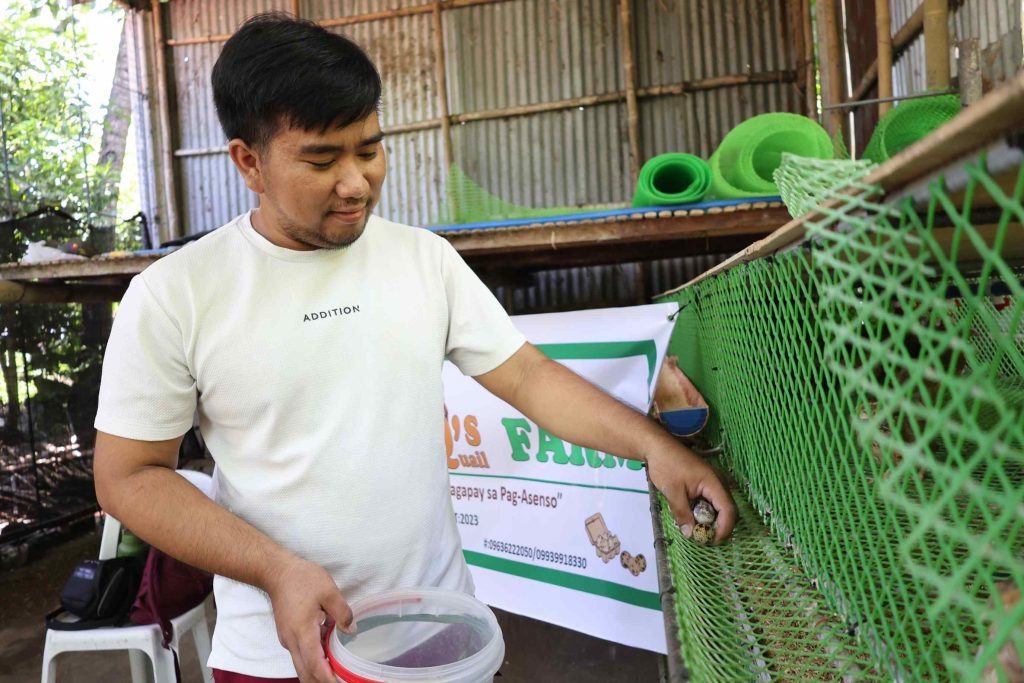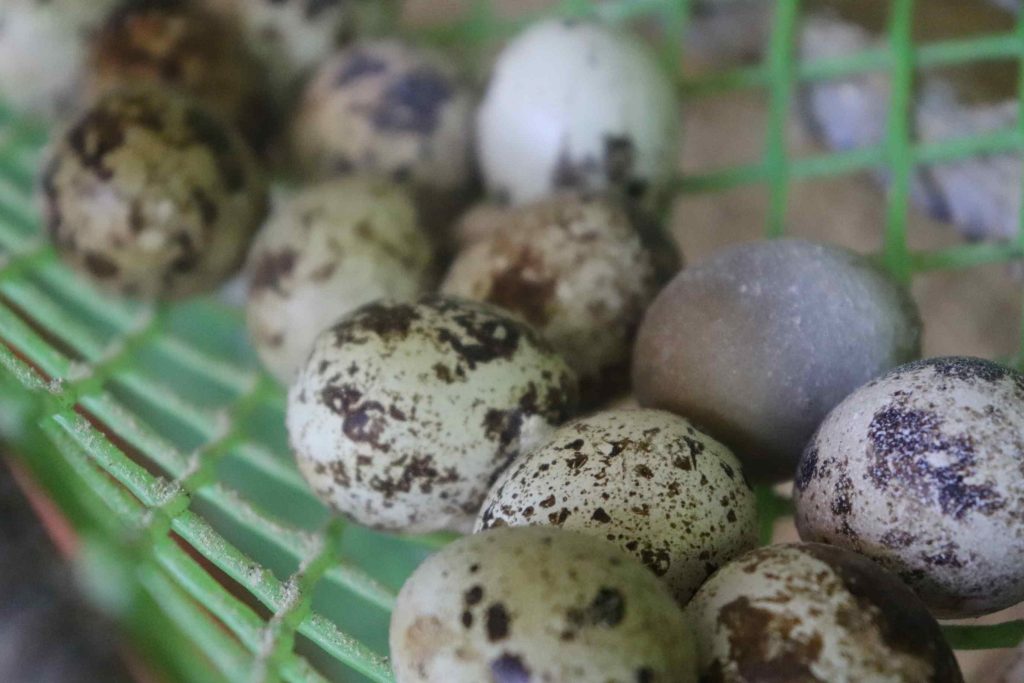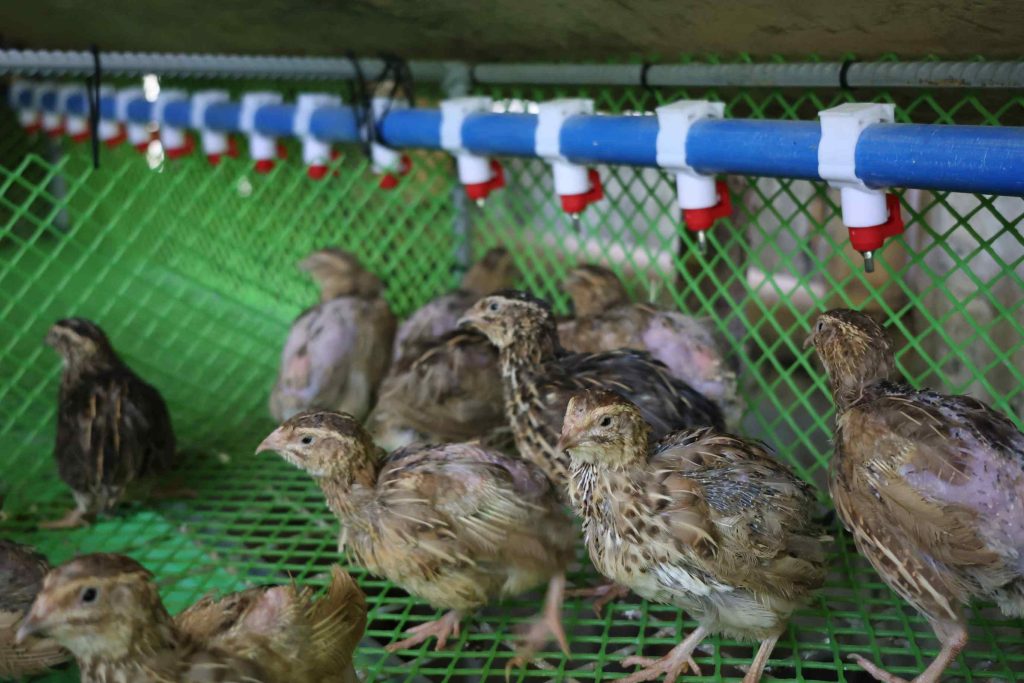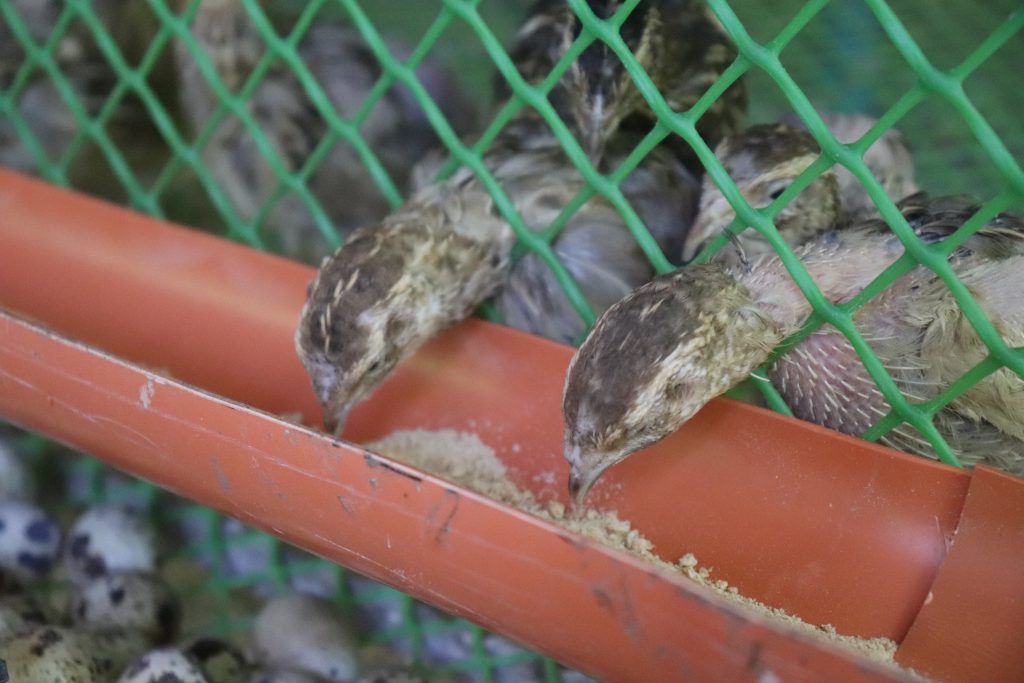From a Mother’s Tears to a Son’s Legacy
Posted by: RAFIS DA6 | Posted at: June 27, 2025
Mike Angelo Fernandez’s story of Agrimiq’s Farm
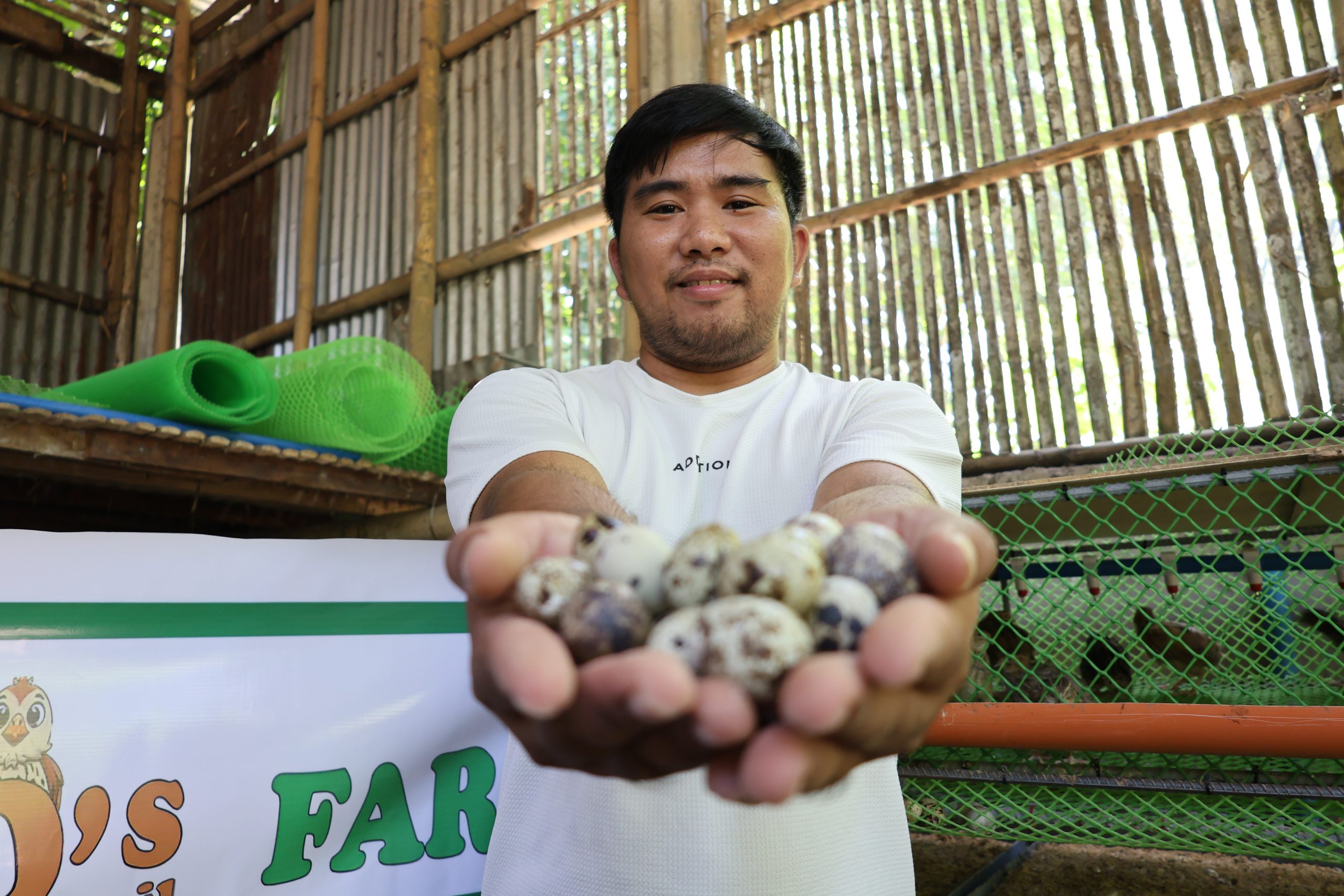
It was a quiet morning, the kind of quiet that lets you hear the earth breathe—the rustle of leaves, the soft cluck of birds, the distant hum of life slowly waking up.
It’s in this kind of stillness that Mike Angelo V. Fernandez begins his day. He walks through Agrimiq’s Farm, his quail farm that now serves as a symbol of persistence, innovation, and unexpected success. The air smells of fresh feed and rice hulls. The sound of pugo chirping echoes softly, blending with the low voices of neighbors and the rhythmic brushing of sweeping.
But behind this peace is a story of struggle. A story of a young man who dared to believe in a future that did not yet exist—and of a mother whose quiet tears, shed in kitchens and behind closed doors, became the fire behind her son’s every step forward.
Mike’s journey wasn’t always defined by dirt-stained hands and poultry pens. It began in the confines of a classroom. As a student, he was tasked to develop a thesis—something that mattered, something relevant to the challenges in his community.
He and his groupmates settled on a study of the pugo (quail) industry. They had noticed that while vendors sold pugo eggs on street corners and near schools, most of the eggs were sourced from far-off suppliers in Iloilo. There was an existing demand, but no local supply.
It was a typical academic exercise. For most, the thesis ended with submission. But for Mike, it planted a seed. Even after the paper was graded and returned, something lingered.
“What if we didn’t just study it?” he thought. “What if we actually did it?”
His groupmates, while supportive, moved on to pursue other paths. Mike, however, couldn’t let it go. That thesis had shown him a gap—a real, solvable problem. And he felt compelled to answer the call.
Thus began Agrimiq’s Farm—a venture not born of privilege, but of purpose.
His dedication did not go unnoticed. The LGU of Patnongon, Antique, saw promise in the young man with big dreams and introduced him to the Young Farmers Challenge (YFC). With technical support from both Patnongon and Belison’s agricultural offices, Mike took the first brave step into entrepreneurship.
The process wasn’t easy. Pitching, coaching, business planning—these were new skills Mike had to learn. But with the support of both Patnongon and Belison’s agriculture offices, he slowly found his footing.
For Mike, this wasn’t just about business. It was about proving that someone like him—young, with no big capital, no famous last name—could still build something meaningful.
And most of all, it was about her.
Behind the scenes of Mike’s every success was a woman who had long carried the weight of the world on her shoulders—his mother.
She had always been the quiet force in their family. She was the one who never ate until everyone else had, the one who stayed up late worrying about bills, the one who smiled even when there was little reason to. Her tears, once shed in silence due to hardship, became his greatest motivation. And now, every drop of joy that falls from her eyes is Mike’s greatest achievement.
“Her tears used to mean struggle,” Mike reflects, “but now, they are tears of pride. That’s when I knew—I must be doing something right.”
Mike is not just a farmer—he’s a builder, a thinker, a problem-solver.
When he noticed that cleaning the pugo pens every day was taking too much time and labor, he redesigned them. He created detachable screen trays lined with rice hulls, which allowed waste to fall neatly into them. This way, he only needed to clean every three days, and the waste could be dried and sold as fertilizer.
When electricity costs became too much, he took an even bolder step—he built his own solar panels. These panels now power the lights in his pens and run his incubator, giving him independence and reducing his expenses.
Then he began experimenting with feed. By mixing hammered corn, soya meal, and copra meal, he formulated his own blend.
Each innovation came not from textbooks, but from observation, trial, and a deep desire to do better.
But the road wasn’t always forward.
There came a time when the weight of it all—deadlines, orders, expectations—caught up with Mike. He felt burnt out. The farm, once his passion, started feeling like a prison.
He questioned himself. Was this worth it?
It was in these moments of darkness that his support system stepped in. His family, his friends, the agriculture officers who had believed in him from the beginning—all reminded him of the why.
That was all it took. Rest, not retreat. And soon, Mike was back—wiser, more balanced, more focused.
The Mike who once hesitated to speak during class now stands in front of panels, presenting his farm and its vision. The boy who once watched his mother cry in silence now gets to see her cry at the back of the room—not from sadness, but from pride.
His transformation wasn’t overnight. It was slow, painful at times, but always real.
Through the YFC, Mike didn’t just find funding. He found himself.
Mike’s story has begun to ripple outward.
In his hometown of Patnongon, more youth are getting involved in agriculture.
Mike dreams of expansion—not just in size, but in impact. He wants Agrimiq’s Farm to be a place where out-of-school youth can work, learn, and believe in themselves again. He wants to build more linkages, enter more markets, and eventually export his products.
But through it all, he insists on keeping his core intact:
“I’m not here just to earn. I’m here to prove that agriculture can be a life worth living.”
Today, Mike shares his story not as a tale of overnight success, but as proof that beginnings don’t define the ending.
“To anyone afraid to start—do it anyway. To those who failed—stand up again. You don’t have to have it all figured out. You just need to care enough to try.”
For Mike, the real harvest is not the quail eggs or the income.
It’s in the courage to begin, the resilience to continue, and the joy of seeing a mother’s tears turn from sorrow to pride.
And that, perhaps, is the greatest yield of all. ###Text and Photos by: Aileen Joy M. Subade/DA-RAFIS 6


